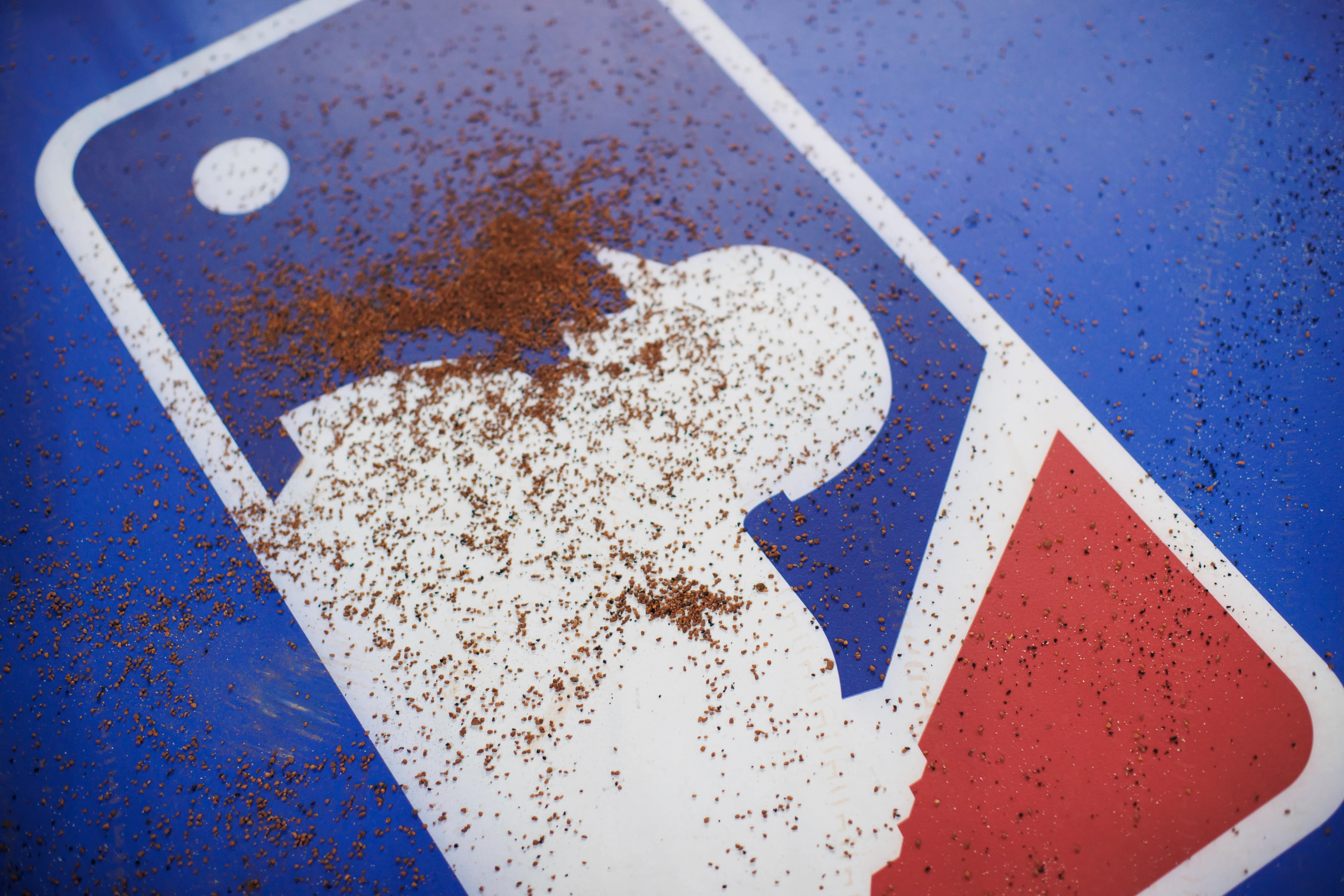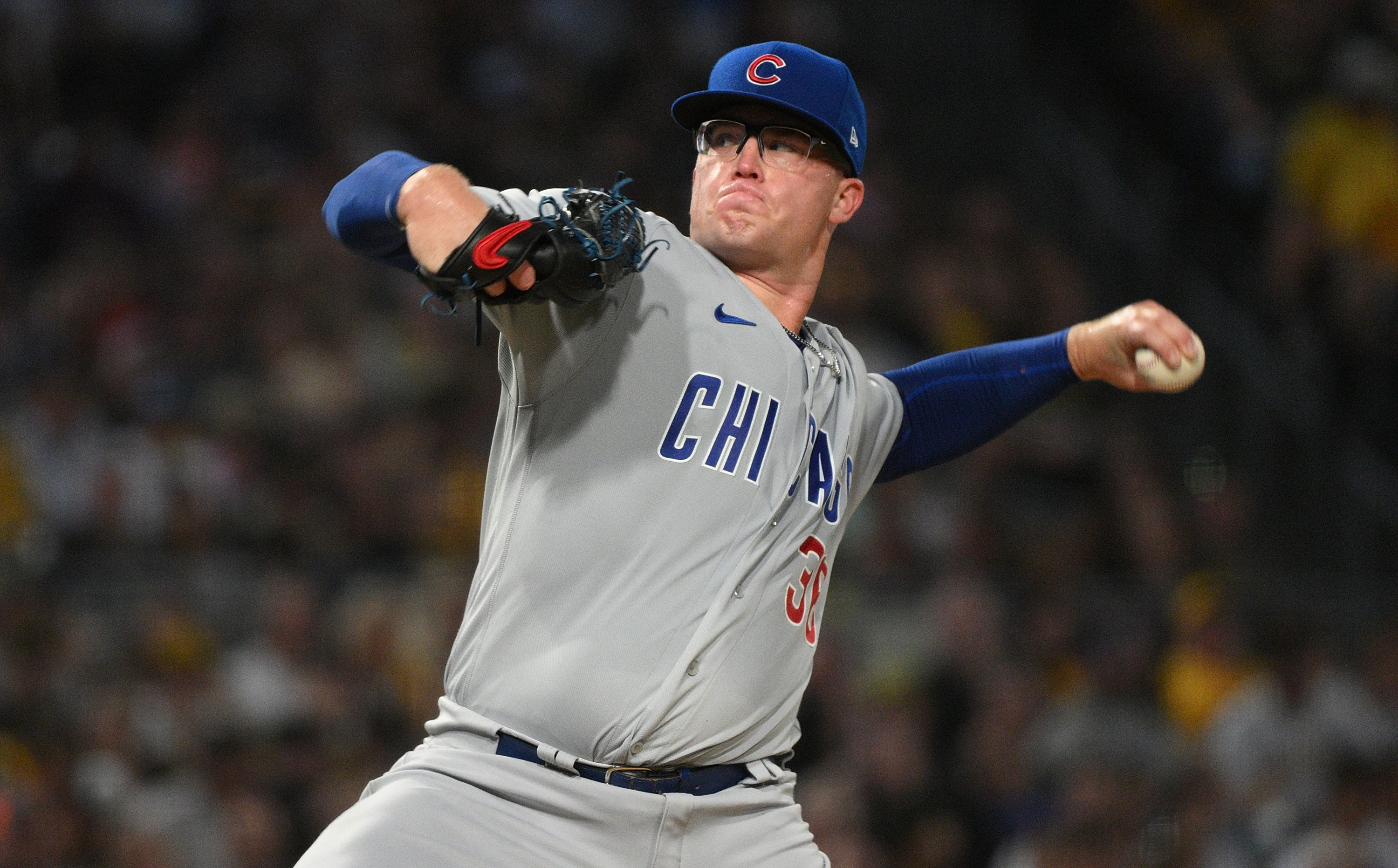In his worst moments, he wanted no part of a baseball season this summer. Not for 60 games. Not for 60 minutes.
“When you’re in the middle of something like that,” Cubs pitching coach Tommy Hottovy said, “there were times I was like, ‘There’s no way I want to go back. There’s no way I want to put myself in this situation again.’ “
But two weeks clear of a harrowing, monthlong case of COVID-19, Hottovy spoke about it Wednesday from Wrigley Field, where he plans to be “all in” for his pitchers as MLB tries to navigate the next 3 1/2 months healthy enough and intact enough to conclude a short baseball season — especially motivated, he said, “to be someone they can use as a resource throughout this whole process.”
As personal and emotional as Hottovy’s description was of an ordeal that included a trip to the hospital and feelings of depression, it also offered a harsh glimpse into just how daunting a task baseball faces as it tries to conduct a three-week Summer Camp, two-month “season” and weeks of playoffs.
Click to download the MyTeams App for the latest Cubs news and analysis.
“There’s going to be challenges ahead of us,” Cubs general manager Jed Hoyer said earlier this week. “You’d have to be naive to think there won’t be moments of difficulty.”
Difficulty? Hottovy, 38, is a recent major league pitcher in athletic shape with no pre-existing conditions to suggest he would have had such a severe reaction to the coronavirus — a reaction that included six consecutive days of triple-digit temperatures, viral pneumonia, painful, sleepless nights and continual testing that didn’t produce a negative until the 30th day after showing symptoms.
MLB
In an emotional Zoom conference with writers, Hottovy emphasized the message he hopes people will hear from his experience: that this highly contagious virus is so unpredictable that it’s foolish to assume it won’t hit you hard — or even become deadly — just because you’re young and healthy, or even a professional athlete.
“No one is immune,” said Hottovy, who “masked up” and wore gloves the few times he left his house and isn’t sure where he contracted the virus. “You hear a lot of the stories out there that, ‘Hey, they’re professional athletes, they’re in great shape; if they get it they’ll be fine, they won’t die.’ The rhetoric is always 'They’re going to be fine; they’re not going to die.'”
Those percentages were in Hottovy’s favor as someone in close to the lowest risk group for severe symptoms.
“It obviously affects people differently,” he said, “and if my story and my journey through this helps one person realize just how severe this can get, and if that saves one life, then I want my story to be heard.”
Even for those tempted to downplay Hottovy’s experience or continue to assume athletes are somehow exempt from dangerous symptoms or death, “people live with family members that are not in the same shape as them,” he said, “potentially high-risk individuals. What we have to wrestle with every day is not only keeping ourselves safe and our team safe but also what we can do to keep our family safe.”
Hottovy, who said his wife and two small children remain virus-free “by grace of God,” kept up with regular Zoom sessions with Cubs pitchers through much of his illness, a process he said he hopes was at least instructive for what lies ahead when players reconvene Friday as a full team for the first time since March.
MORE: How Cubs' Tommy Hottovy kept his family safe while battling COVID-19
“It’s going to be difficult. It’s going to be a challenge,” he said. “But it’s something that I think we’ve all signed up for, and in my case, I want to be here for these guys. I didn’t want to opt out just because I had it once. Obviously, I don’t want to get it again. I don’t want to go through what I went through again. But I want to be here for them.
“I want to be able to answer those questions and be accessible.”
That goes for what he and his wife can share with families of players and staff, too, he said.
But he can’t answer many of the questions — including what long-term effects might be in store for him, or even being sure just how much immunity he has and if the virus can come back.
He said he lost 18 pounds while he was sick, still deals with shortness of breath and estimates he’s at about 80 percent of normal strength.
But as the Cubs and the rest of baseball await results of just the first league-wide round of intake testing, nobody knows what level of positive tests they’ll face. Never mind how many players they can keep healthy long enough to play any games at all, much less everything they have scheduled.
And the big question that hangs over the whole thing: Should they — or any sport — even be trying this?
If Hottovy’s experience suggests anything, it’s just how legitimate that question is.
It already was being asked before the dramatic spikes recently in rates of cases in states such as Florida, Texas, Arizona and California — home to a significant percentage of players and to one-third of MLB teams.
Even if we allow ourselves the generous assumption that the virus won’t kill anyone involved in this effort, a COVID-19 case similar to Hottovy’s seems at least to have a good chance of ending a player’s season on the spot — something many might not have assumed before hearing him Wednesday.
But Hottovy isn’t in favor of shutting it down. He said the health protocols in place offer a “best chance” to thread the needle required to pull it off.
And he said he believes in the value to society of having sports start up again.
“But at the same [time], one little misstep, one little contact situation by one person can derail an entire industry,” he said. “I’m not saying it could be that extreme … but all it takes is for one person to walk by somebody and get coughed on, sneezed on or go out to a local place and you’re around somebody.
“And the next thing you know, you lose two or three key guys and you’re looking at a tough situation. I want to give everybody the benefit of the doubt, and I do want to make sure we do everything we can to bring baseball back to the people and to the fans.
“But we really have to take care of ourselves and take care of each other and hold each other accountable or it could easily get derailed.”


